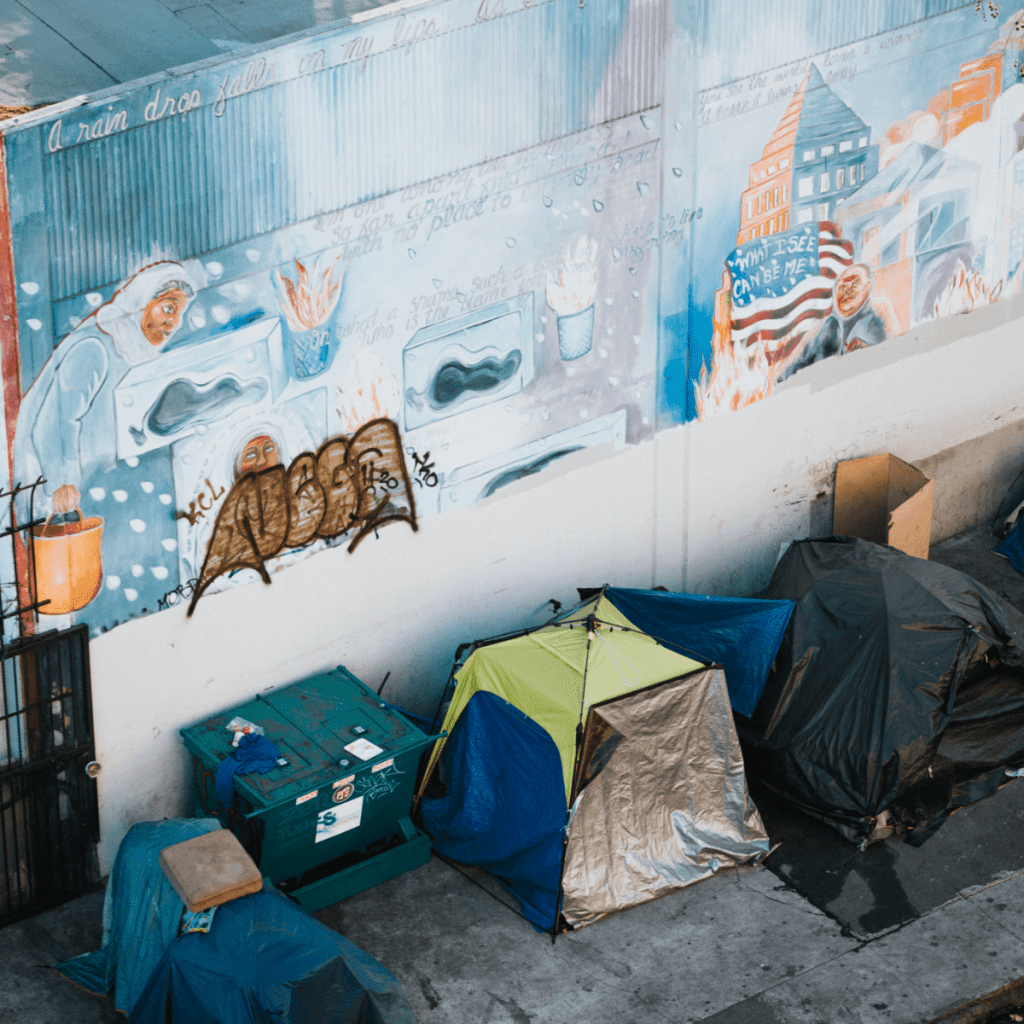Politics as a Driver of Health

“I’m most interested in alleviating systems of oppression,” says Dr. Charley Willison, who joined the MPH Program faculty this January, and whose research seeks to understand how policy and politics can improve outcomes for the “overlapping and co-occurring” issues of homelessness, substance use disorders, and disaster response. In public health policy spaces, she kept finding that despite overwhelming evidence pointing to best practices for mitigating public health crises—like delivering needle exchange and safe injection programs to address the opioid epidemic—these solutions often did not play out, especially for the most vulnerable populations. She wanted to understand why, and pursued a PhD at the University of Michigan in a program that linked public health with political science.
According to Willison’s new book, Ungoverned and Out of Sight: Public Health and the Political Crisis of Homelessness in the United States, more people in the United States now experience homelessness than suffer from opioid use disorders. Homelessness is often associated with major physical and mental health concerns, but like with substance use disorders, policies and services usually fail to address the chronic problem. “Government is often not involved, or involved in limited ways, which is interesting since homelessness has such massive implications for public health outcomes,” she says. “The actors that sit in this space have critical public health expertise, but are often under-resourced, with limited authority, and therefore unable to implement the necessary solutions.” Willison’s research also focuses on the role of disasters, including infectious disease outbreaks and climate events. Disasters like COVID-19 disproportionately exacerbate the health risks of homelessness, but they can also compel local and state governments to focus more resources on homelessness because of the drastic increase in its prevalence.
 This semester, Willison is teaching an MPH course called Public Health Policy and Practice. She designed it to engage students with political systems, including the processes and structures of planning and delivering public health policies, and the power dynamics inherent to these systems. “The goal is for students to understand how their public health careers will be affected by and can affect policy and politics,” she says of the course, where students engage with policy through assignments like policy memos, advocacy statements, and public comments “that they can use moving forward to impact public health, whether or not they go into policy.”
This semester, Willison is teaching an MPH course called Public Health Policy and Practice. She designed it to engage students with political systems, including the processes and structures of planning and delivering public health policies, and the power dynamics inherent to these systems. “The goal is for students to understand how their public health careers will be affected by and can affect policy and politics,” she says of the course, where students engage with policy through assignments like policy memos, advocacy statements, and public comments “that they can use moving forward to impact public health, whether or not they go into policy.”
“There are many reasons I’m excited to be at Cornell,” says Willison, who says she joined the faculty largely because of the MPH Program’s unique use of One Health and Planetary Health frameworks to look at interconnections of human health and environmental factors, including climate change, with social factors such as racism, colonialism, and other social determinants of health. “To have a public health program looking at these intersections is very forward thinking and exciting.”
Written by Audrey Baker
